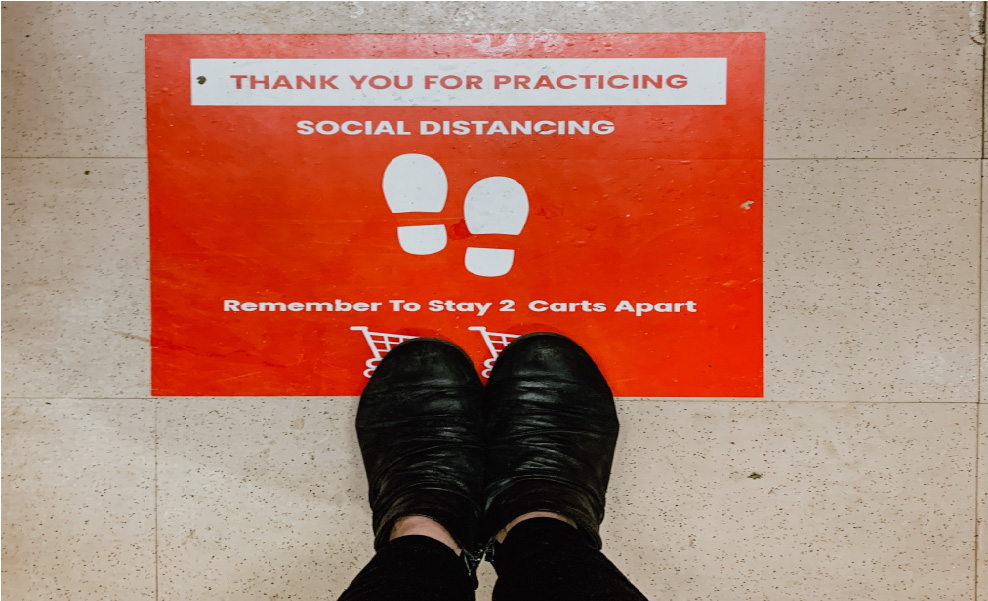
Tuesday 19th May 2020, NCBI (National Council for the Blind of Ireland) is highlighting how practicing social distancing can be very challenging for the 54,810 people who are blind or visually impaired and is urging the general public to support them in this practice.
Kevin Kelly, NCBI Head of Advocacy said “practicing or engaging in physical or social distancing is virtually impossible for people who are blind or vision-impaired and as our streets and shops become busier with the easing of government restrictions it is a huge source of stress and frustration for people. It is essential the public have a greater understanding of the challenges faced and how they can help overcome them.”
Challenges facing those who are blind and vision-impaired:
- Being unable to judge distances, thus making self-distancing impossible.
- Being unable to see temporary markings to illustrate distance.
- Often being unaware of the existence of a queuing system, or where a queue begins or ends.
- Being unable to locate or read signage outlining the hygiene practices to be followed.
- Guide dogs are not trained to socially distance.
Mr Kelly added “As social distancing is here to stay, it is frustrating that to date, public health officials have failed to recognize the profound impact of social distancing on people who are blind and vision-impaired. It is now vital the general public step up and provide assistance and support to ensure that people who are blind and vision-impaired can actively engage in society in the weeks and months ahead. To aid the public, NCBI would strongly encourage people who are blind and vision-impaired to always carry a long cane or a symbol cane when in public places to allow easy identification of a vision impairment.”
How the public can help:
- People should always afford a blind or vision-impaired person the required two meters’ distance in all circumstances.
- People should make their presence known before offering assistance, which many blind and vision-impaired people will welcome.
- People can offer verbal instructions which may be very helpful to the blind or vision-impaired person in certain circumstances – the key here is to always ask first.
- People should never just grab someone who is blind or vision-impaired in the belief that they are being helpful.
- When queuing outside shops, people should be careful not to block the path of someone who is blind or vision-impaired.
Marian Maloney, NCBI service user and advocate, said “COVID-19 and its associated restrictions have been really tough for everyone, but as the majority of people are beginning to feel a sense of relief due to the lessening of restrictions, I’m afraid of what is to come, as social distancing is so very daunting and overwhelming. I want to get back to as close to normal as possible, but I will only be able to do that if the general public respect my space and provide assistance in a respectful way.”
-ENDS-